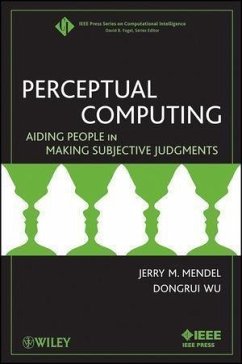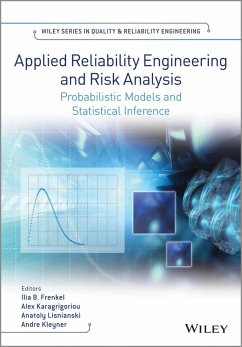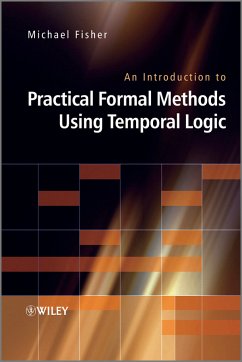
Uncertainty and Information (eBook, PDF)
Foundations of Generalized Information Theory
Versandkostenfrei!
Sofort per Download lieferbar
136,99 €
inkl. MwSt.
Weitere Ausgaben:

PAYBACK Punkte
0 °P sammeln!
Deal with information and uncertainty properly and efficiently using tools emerging from generalized information theory Uncertainty and Information: Foundations of Generalized Information Theory contains comprehensive and up-to-date coverage of results that have emerged from a research program begun by the author in the early 1990s under the name "generalized information theory" (GIT). This ongoing research program aims to develop a formal mathematical treatment of the interrelated concepts of uncertainty and information in all their varieties. In GIT, as in classical information theory, uncer...
Deal with information and uncertainty properly and efficiently using tools emerging from generalized information theory Uncertainty and Information: Foundations of Generalized Information Theory contains comprehensive and up-to-date coverage of results that have emerged from a research program begun by the author in the early 1990s under the name "generalized information theory" (GIT). This ongoing research program aims to develop a formal mathematical treatment of the interrelated concepts of uncertainty and information in all their varieties. In GIT, as in classical information theory, uncertainty (predictive, retrodictive, diagnostic, prescriptive, and the like) is viewed as a manifestation of information deficiency, while information is viewed as anything capable of reducing the uncertainty. A broad conceptual framework for GIT is obtained by expanding the formalized language of classical set theory to include more expressive formalized languages based on fuzzy sets of various types, and by expanding classical theory of additive measures to include more expressive non-additive measures of various types. This landmark book examines each of several theories for dealing with particular types of uncertainty at the following four levels: * Mathematical formalization of the conceived type of uncertainty * Calculus for manipulating this particular type of uncertainty * Justifiable ways of measuring the amount of uncertainty in any situation formalizable in the theory * Methodological aspects of the theory With extensive use of examples and illustrations to clarify complex material and demonstrate practical applications, generous historical and bibliographical notes, end-of-chapter exercises to test readers' newfound knowledge, glossaries, and an Instructor's Manual, this is an excellent graduate-level textbook, as well as an outstanding reference for researchers and practitioners who deal with the various problems involving uncertainty and information. An Instructor's Manual presenting detailed solutions to all the problems in the book is available from the Wiley editorial department.
Dieser Download kann aus rechtlichen Gründen nur mit Rechnungsadresse in A, B, BG, CY, CZ, D, DK, EW, E, FIN, F, GR, HR, H, IRL, I, LT, L, LR, M, NL, PL, P, R, S, SLO, SK ausgeliefert werden.












